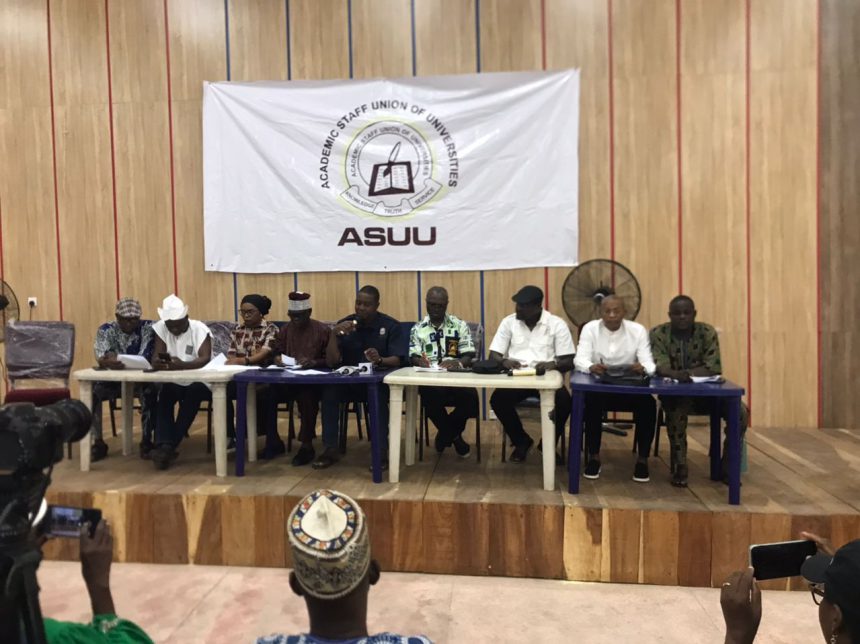Nigeria’s university system is once again at a crossroads as the Federal Government prepares to meet with the Academic Staff Union of Universities (ASUU) on Thursday, August 28, in a make-or-break negotiation that could determine whether the nation’s public universities are plunged into another prolonged strike.
On Tuesday, ASUU zones across the country staged simultaneous press conferences to brief Nigerians on what they described as the government’s failure to address long-standing issues despite years of negotiation.
In Ibadan, the zonal leadership of ASUU declared that the time for promises was over, insisting that only the immediate implementation of the Yayale Ahmed report, submitted to government in February, could avert a fresh shutdown of public universities.
Coordinator of the Ibadan zone, Professor Biodun Olaniran, stressed that the report, which represents a consensus painstakingly reached after years of back-and-forth, “addressed all contentious issues between the union and government” but has since been left to gather dust.
“The federal government must understand that another jamboree meeting without concrete action will not stop us from declaring strike. What can stop it is the prompt implementation of the recommendations of the Yayale Ahmed panel,” Olaniran said.
The union lamented what it called the worsening conditions of service for its members and the deteriorating state of infrastructure in universities across the country. Olaniran further listed outstanding grievances, including the victimisation of ASUU members in institutions such as Lagos State University (LASU), Kogi State University (KSU), and Federal University of Technology, Owerri (FUTO).
He also demanded immediate payment of withheld 25–35 percent salaries, settlement of long-overdue promotion arrears spanning over four years, and release of withheld third-party deductions.
On the issue of payment systems, ASUU once again faulted the Federal Government’s reliance on the Integrated Payroll and Personnel Information System (IPPIS). Olaniran argued that despite government’s claims of alternatives, payments to members were still processed through “a template that follows the rejected IPPIS model,” which the union insists is riddled with irregularities and does not suit the peculiarities of the academic environment.
At the Ibadan briefing, representatives of ASUU branches from the University of Ibadan, University of Ilorin, Ladoke Akintola University of Technology, Osun State University, Kwara State University, and the Emmanuel Alayande University of Education lent their voices to the demands, warning that patience was running out.
The press conferences across ASUU zones were coordinated to send a unified message: that the union will no longer accept indefinite delays or half-measures.
For many Nigerians, the looming August 28 meeting is a familiar script, years of negotiations, signed agreements, and unfulfilled promises that ultimately leave students stranded and the education sector in limbo.









